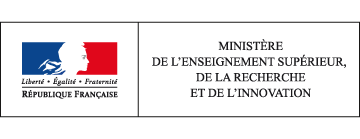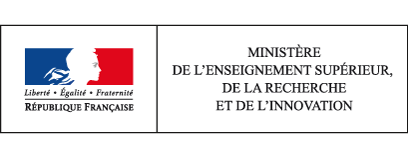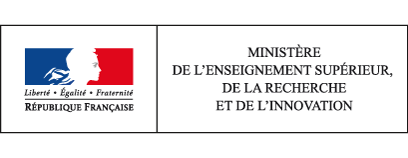07 the baccalauréat examination and baccalauréat holders
This page has been updated. Read 07. the baccalauréat examination and baccalauréat holders in Higher education & research in France, facts and figures 10th edition - June 2017
At the 2015 session, 618,800 of the 703,900 candidates obtained their baccalauréat (87.9%), bringing the proportion of baccalauréat holders in a generation to 77.2%. Over half of these candidates obtained a general baccalauréat.
At the 2015 session of the Baccalaureate, 703,949 candidates sat the exam in France and 618,844 obtained their diploma. The pass rate of 87.9% is generally stable (-0.1 point) compared to 2014 (chart 07.01). The fall in the pass rate for the vocational Baccalaureat (-1.7 points) is compensated for by the rise in the general Baccalaureat (+0.5 points).
At this session, 317,100 candidates obtained a general Baccalaureat, 125,100 a technological Baccalaureat and 176,600 a vocational Baccalaureat. Over 11,000 Bac holders more than in 2014 were included in the general path, specifically due to the fact that Bac holders in the bi-national sections, of which there were 2,700, were taken into account for the first time in 2015.
In 2015, 13,000 Bac holders fewer than in 2014 were included in the vocational path, including 11,000 in services specialisms. Numbers in the technological path lost the benefit of the increase noted in 2014, with the STMG (management sciences and technology) and ST2S (health and social sciences and technology) series having 5,700 fewer graduates.
Between 1995 and 2014, the distribution of Baccalaureat holders (table 07.02)shifted in favour of vocational specialities. The proportion of vocational Bac holders increased sharply between 2010 and 2014 (nearly 8 points), i.e. nearly 17 points higher than in 1995 when the vocational path was reformed. The vast majority of pupils in their 4th year of secondary education ('troisième') who choose the vocational path now opt for a course leading to the baccalauréat. In turn, the proportion of general Bac holders has fallen by nearly 10 points and technological Bac holders by nearly 7 points. In 2015, the vocational path fell by 2 points, with a decline in services specialities. At the same time, the general path grew in importance (+2.3 points), especially due to scientific (S) series. The technological path remained stable.
In 2015, 77.2% of young people in a generation (excluding Mayotte) obtained the Baccalaureat: 39.5% a general Baccalaureat, 15.6% a technological Baccalaureat and 22.2% a vocational Baccalaureat (chart 07.03). Since 1985, the annual number of Baccalaureat diplomas awarded has more than doubled and the proportion of Baccalaureat holders in a generation has increased from 29.4% to 77.2%. This sharp increase is mainly due to the growth in the number of general Bac holders and the rapid development of the vocational Baccalaureat, introduced in 1987. Between 1995 and 2008, in contrast to the long period of growth that had gone before, the proportion of Bac holders in a generation reached a ceiling and stabilised at around 62%, then it increased by 3 points in 2009 following the introduction of the vocational Baccalaureat resit session. Stable in 2010, it fluctuated during the transition phase following the reform of the vocational Baccalaureat (Bac in 3 years ratherthan 4), and increased by over 12 points between 2010 and 2015.
More than one Bac holder in four comes from a background of managers and higher intellectual professions, the socio-occupational category that is most represented (table 07.04). This is particularly true for the general path, with more than one Bac holder in three coming from this background. Children of employees are proportionally most numerous among holders of the technological Baccalaureat, while children of manual workers in the vocational path.
MAAF.
How to cite this paper :
close
Key figures
baccalauréat holders
Metropolitan France + overseas departments
candidates
Metropolitan France + overseas departments
general baccalauréat holders
Metropolitan France + overseas departments
general baccalauréat holders
Metropolitan France + overseas departments
general baccalauréat holders
Metropolitan France + overseas departments
Metropolitan France + overseas departments
Metropolitan France + overseas departments
Metropolitan France + overseas departments
Metropolitan France + overseas departments
Metropolitan France + overseas departments
Metropolitan France + overseas departments
Metropolitan France + overseas departments
Metropolitan France + overseas departments
07.01 Change in baccalauréat pass rate according to study path since 1995 (%)
MAAF
You can embed this chart to your website or your blog by copying the HTML code and pasting it into the source code of your website / blog:
close
07.02 Change in and distribution of baccalauréat candidates between sessions 1995, 2014 and 2015
1 excluding Mayotte.
MAAF
You can embed this table to your website or your blog by copying the HTML code and pasting it into the source code of your website / blog:
close
07.03 Proportion of baccalauréat holders in a generation (sessions from 1950-2015p) (%)
The proportions of baccalauréat holders in a generation for the sessions from 2012 to 2015 have been updated based on the demographic review published by Insee in March 2015. Values may therefore differ from those published last year.
This review provides provisional population estimates from 2012 onwards. The proportions of baccalauréat holders in a generation for sessions 2012 to 2014 are therefore provisional.
p Provisional.
1 1969: First session of the technological Baccalaureat.
2 1987: First session of the vocational Baccalaureat.
3 2009: Creation of the retake examination for the vocational Baccalaureat.
4 2011-2014: Reform of the vocational path.
MAAF
You can embed this chart to your website or your blog by copying the HTML code and pasting it into the source code of your website / blog:
close
07.04 Distribution of successful candidates (excluding agricultural technological and vocational specialities) in 2015 by social background (%)
You can embed this table to your website or your blog by copying the HTML code and pasting it into the source code of your website / blog:
close
Related statistical publications
 Note d'information DEPP 16.22 - Le baccalauréat 2016 - Fanny Thomas - July 2016
Note d'information DEPP 16.22 - Le baccalauréat 2016 - Fanny Thomas - July 2016 Le taux de réussite au baccalauréat général, de 91,4 %, est identique à celui de 2015. Celui du baccalauréat technologique, qui avait augmenté fortement de 2005 à 2014, est stable depuis à 90,7 %. Dans la voie professionnelle, le taux de réussite gagne 1,9 point et dépasse son niveau de 2014 avec 82,2 %. On compte ainsi 3 100 bacheliers professionnels de plus qu’en 2015. La part des bacheliers dans une génération augmente de 77,7 % en 2015 à 78,6 % en 2016 en raison du plus grand nombre de candidats dans la voie générale.

 Note d'information DEPP 16.07 - Résultats définitifs de la session 2015 du baccalauréat - Fanny Thomas - March 2016
Note d'information DEPP 16.07 - Résultats définitifs de la session 2015 du baccalauréat - Fanny Thomas - March 2016 2015. Il atteint 87,9 % : 91,5 % en général, 90,7 % en technologique et 80,5 % en professionnel.
L’effectif de candidats a baissé de près de 50 000 dans la voie technologique depuis 2004, dont 4 500 depuis 2014. Sur la même période, la voie professionnelle a augmenté de 96 000 candidats et la voie générale de 29 000 dont 10 000 l’an dernier. Dans le même temps, la proportion de bacheliers dans une génération a gagné plus de 16 points et atteint 77,2 % en 2015.
L’espérance d’obtenir le baccalauréat en 2015 pour un élève de sixième sous statut scolaire est la plus forte dans les académies d’Île-de-France, de Limoges, de Lyon, de Rennes et de Toulouse.
Dans 9 % des cas, les candidats au baccalauréat ont suivi un parcours spécifi que en langue, beaucoup plus souvent dans la voie générale et la série Hôtellerie qu’ailleurs.

 Note d'information DEPP 15.24 - Le baccalauréat 2015 - Sylvie Le Laidier, Fanny Thomas - July 2015
Note d'information DEPP 15.24 - Le baccalauréat 2015 - Sylvie Le Laidier, Fanny Thomas - July 2015 Le taux de réussite au baccalauréat général remonte de 0,6 point, à 91,5 % et retrouve pratiquement son niveau de 2013. Celui du baccalauréat technologique, qui avait connu une forte augmentation en deux ans, plus de 7 points, est cette fois stable, à 90,6 %. Celui du baccalauréat professionnel, qui avait augmenté de façon spectaculaire en 2014 en gagnant 3,4 points, perd 1,6 point à 80,3 %. La part des bacheliers dans une génération recule à 77,2 % en 2015, contre 78,3 % en 2014 en raison du moins grand nombre de candidats.
Translation
 Etat de l'enseignement supérieur et de la rechercheL'état de l'Enseignement supérieur et de la Recherche en France n°9 - Juin 2016
Etat de l'enseignement supérieur et de la rechercheL'état de l'Enseignement supérieur et de la Recherche en France n°9 - Juin 201607 - le baccalauréat et les bacheliers - Fanny Thomas






